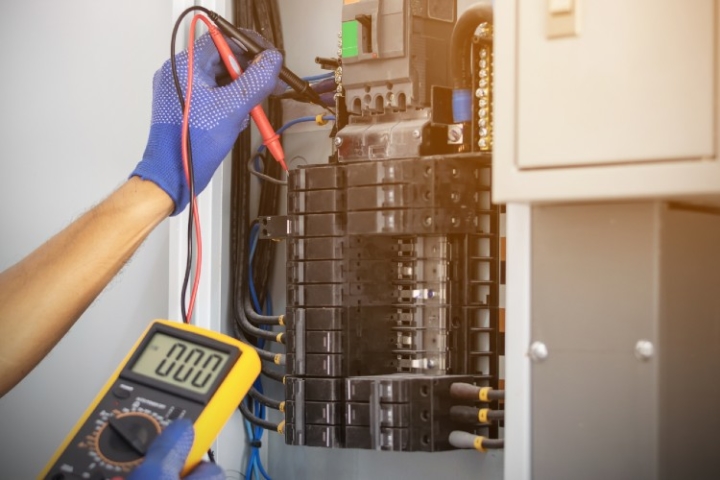Understanding the House Auction Process Step-by-Step the excitement, the anticipation, the rush of securing your dream property—it all begins with the house auction process. Whether you’re a seasoned investor or a first-time buyer, understanding how a house auction works can be a game-changer. This structured yet thrilling process allows you to secure a property in a manner that is transparent, competitive, and fast-paced. But navigating the house auction process can seem daunting, especially if it’s your first time.
This comprehensive guide will walk you through each phase of the house auction process, offering insights into how to prepare, what to expect, and how to maximize your chances of securing the property of your dreams. So, grab your notepad, because here’s everything you need to know!

What is a House Auction?
At its core, a house auction is a public sale where properties are sold to the highest bidder. This process is usually facilitated by an auction house or a real estate agent in a formal, structured setting. Unlike traditional home-buying methods, house auctions have a competitive edge where potential buyers place bids against each other, often in real-time.
The house auction process typically occurs in a public venue or online, with a set starting price or reserve price. As the bidding progresses, prospective buyers raise their bids until one bidder remains, securing the property. It’s a fast-paced event, and there’s a sense of urgency that’s hard to replicate in a standard real estate transaction.
The Advantages of Buying Through a House Auction
Before diving into the specifics of the house auction process, it’s important to understand the potential advantages of buying through an auction. Here are a few reasons why house auctions can be appealing:
- Transparency: The auction process is public, meaning you can clearly see all competing bids and understand the price you need to pay to secure the property.
- Speed: Unlike traditional home buying, the house auction process typically happens very quickly. From the moment the auction begins, you can know whether you’ve won the property by the end of the day.
- Competitive pricing: Auctions often provide an opportunity to secure properties at competitive prices, sometimes even below market value, depending on the level of competition and demand.
Now that you know what a house auction is and why you might want to consider participating in one, let’s break down the house auction process step-by-step.
Step 1: Research the Property
Before you step foot in an auction room, the most crucial part of the house auction process is research. It’s tempting to jump straight into bidding, but doing your homework can make all the difference.
How to Research
- Review the property details: Auction listings typically include essential information about the property, including its condition, location, and legal standing.
- Inspect the property: If possible, attend open house viewings. Properties at auctions are often sold as-is, which means you won’t have the chance to negotiate repairs or ask for concessions after winning the bid.
- Assess the value: Understanding the market value of the property is essential. Research comparable properties (also known as ‘comps’) in the area to ensure the auction price aligns with market trends.
- Understand the reserve price: The reserve price is the minimum price the seller is willing to accept for the property. If bidding doesn’t reach this threshold, the property may not be sold at auction.
The research phase sets the foundation for everything. It’s essential to have a clear understanding of the property’s value and condition, as well as your own financial limitations, before moving forward.
Step 2: Set Your Budget
Before the house auction process even begins, you must establish your budget. Setting a strict financial limit is crucial for staying within your means and avoiding overbidding in the heat of the moment. It’s easy to get caught up in the competitive atmosphere of the auction, but having a pre-determined budget will help you stay grounded.
How to Determine Your Budget
- Know your financing options: If you’re not paying in cash, ensure you have your financing lined up. Speak to a mortgage broker to understand how much you can afford and get pre-approval if needed.
- Factor in additional costs: Don’t forget to budget for auction fees, property taxes, insurance, and potential repairs. These additional costs can quickly add up, so ensure they’re included in your overall budget.
- Stick to your limit: Once you’ve established your budget, stick to it. Set a maximum bid and do not exceed it, no matter how tempting it may seem. Auctions can be emotionally charged, but staying disciplined is key.
Step 3: Register for the Auction
Once you’ve researched the property and set your budget, the next step in the house auction process is registration. Most house auctions require prospective bidders to register before the event.
Registration Process
- Provide necessary documentation: You’ll typically need to provide identification and proof of funds or financing, especially if you plan to bid at a live auction.
- Sign the auction terms and conditions: Auctions have strict rules that bidders must follow. Make sure to read these terms carefully and sign them as part of the registration process.
- Get a bidder number: After registration, you’ll be given a bidder number, which you’ll use to place your bids. Keep this number visible so the auctioneer knows who is making each offer.
By registering, you’re officially entering the house auction process and are allowed to participate when the auction starts.
Step 4: Attend the Auction
The big day has arrived! Whether the auction is held in person or online, attending is an essential part of the house auction process. The auction itself is an exciting event where the bidding begins, and you get the opportunity to compete with other buyers.
What to Expect
- The auctioneer’s role: The auctioneer will open the bidding by announcing the property details and starting the auction. They’ll guide the process, calling out bids and progressing until the highest bid is reached.
- Bidding tactics: As the bidding starts, you’ll want to stay calm and strategic. If you’re eyeing a specific property, know your maximum bid and stick to it. Some bidders prefer to enter the bidding early, while others wait for the momentum to build before making their move.
- Keep an eye on other bidders: Pay attention to the pace of the auction. If there’s a lot of competition, the price may escalate quickly. Likewise, if the bidding is slow, you may have more room to negotiate.
Whether online or in person, the atmosphere during a house auction is electric. Keep your wits about you and focus on your goal of securing the property at a reasonable price.
Step 5: Winning the Bid
If you’re the highest bidder when the auctioneer calls “sold,” you’ve won the property. But, winning the bid doesn’t mean you’re done yet. There are still several important steps in the house auction process.
What Happens Next
- Sign the contract: After winning the bid, you’ll need to sign a contract of sale. This legally binds you to purchase the property at the agreed-upon price.
- Pay the deposit: Most auctions require you to pay a deposit immediately after winning the bid. This can range from 5% to 10% of the purchase price and is usually non-refundable.
- Settle the balance: You’ll typically have a short time frame, often 28 days, to pay the balance of the purchase price. Be prepared to settle quickly, as the contract is legally binding.
The moment you sign the contract and pay the deposit, the property is yours, and you’re on your way to completing the purchase.
Step 6: Finalizing the Sale
After winning the bid, the final steps of the house auction process involve completing all necessary paperwork and financial transactions.
Closing the Deal
- Inspection and valuation: In many cases, you’ll be able to arrange a final inspection of the property before settlement. This is your chance to check that everything is in order.
- Transfer of ownership: Once all paperwork is completed, and the full balance is paid, ownership of the property is officially transferred to you. You can now take possession and start planning for any renovations or changes you want to make.
Navigating the house auction process can be an exhilarating experience that allows you to secure a property in a transparent, competitive environment. Whether you’re a first-time buyer or an experienced investor, understanding each step of the process ensures you’re prepared to make informed decisions, stay within your budget, and ultimately, achieve your real estate goals.
From conducting research and setting a budget to attending the auction and finalizing the sale, every phase of the house auction process plays a crucial role in determining the outcome. So, get ready to embrace the excitement and challenge of house auctions, and soon, you could be holding the keys to your dream home!





More Stories
Top Trends in Home Colour Exterior for a Stunning Curb Appeal
The Ultimate Guide to Using Carpet Protection Film at Home
A Complete Guide to Finding the Right Interior Design Firms in Los Angeles